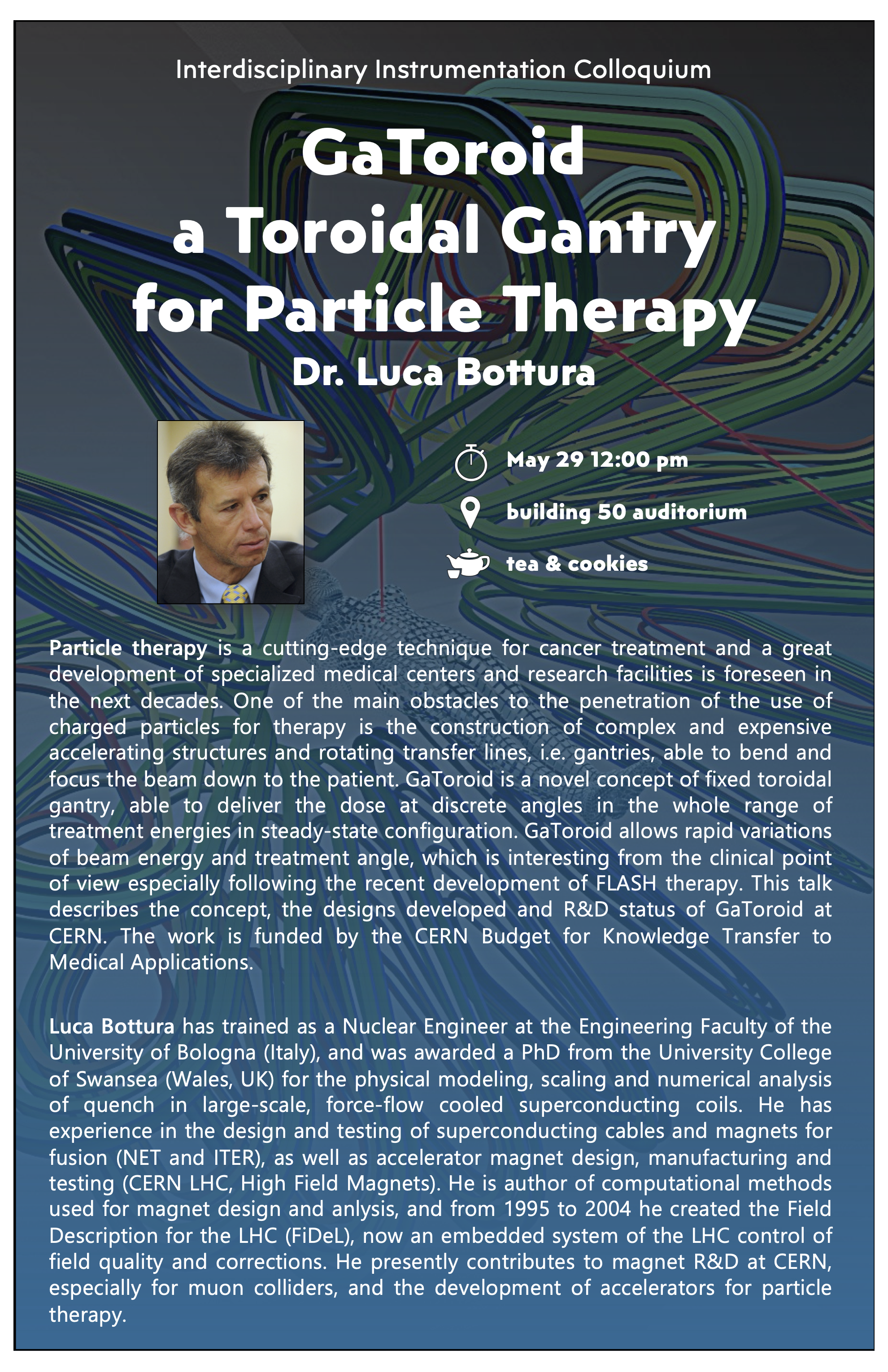Luca Bottura, "GaToroid – a Toroidal Gantry for Particle Therapy"
by
Auditorium (50)

Abstract
Particle therapy is a cutting-edge technique for cancer treatment and a great development of specialized medical centers and research facilities is foreseen in the next decades. One of the main obstacles to the penetration of the use of charged particles for therapy is the construction of complex and expensive accelerating structures and rotating transfer lines, i.e. gantries, able to bend and focus the beam down to the patient. GaToroid is a novel concept of fixed toroidal gantry, able to deliver the dose at discrete angles in the whole range of treatment energies in steady-state configuration. GaToroid allows rapid variations of beam energy and treatment angle, which is interesting from the clinical point of view especially following the recent development of FLASH therapy. This talk describes the concept, the designs developed and R&D status of GaToroid at CERN. The work is funded by the CERN Budget for Knowledge Transfer to Medical Applications.
Speaker Bio:
Luca Bottura has trained as a Nuclear Engineer at the Engineering Faculty of the University of Bologna (Italy), and was awarded a PhD from the University College of Swansea (Wales, UK) for the physical modeling, scaling and numerical analysis of quench in large-scale, force-flow cooled superconducting coils. He has experience in the design and testing of superconducting cables and magnets for fusion (NET and ITER), as well as accelerator magnet design, manufacturing and testing (CERN LHC, High Field Magnets). He is author of computational methods used for magnet design and anlysis, and from 1995 to 2004 he created the Field Description for the LHC (FiDeL), now an embedded system of the LHC control of field quality and corrections. He presently contributes to magnet R&D at CERN, especially for muon colliders, and the development of accelerators for particle therapy.
